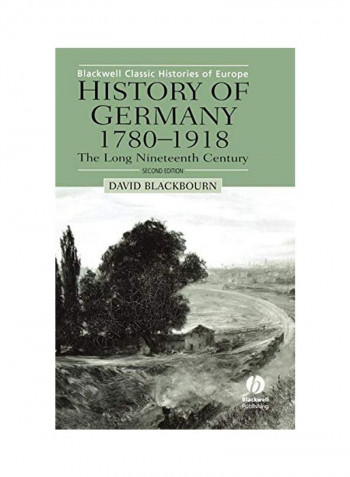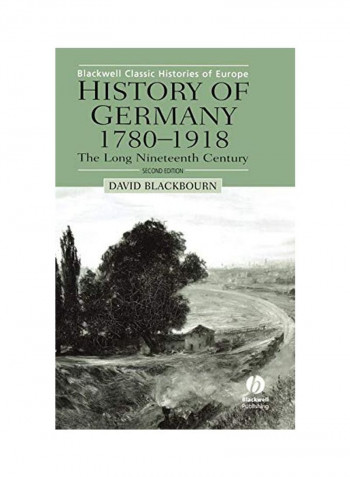History Of Germany 1780-1918: The Long Nineteenth Century Hardcover 2
Recommend
Sort by
Rating
Date
Specifications
Author 1
David Blackbourn
Book Description
In the late eighteenth century, German-speaking Europe was a patchwork of principalities. Yet by the early twentieth century, unified Germany had become the most powerful state in Europe. David Blackbourn tells the story of this transformation with eloquence, authority and wit, weaving together political, social, and cultural history. This is a book about revolution, nationalism and the growing role of the state. It also explores subjects that range from religion to racism, and Mozart to medicine. The result is a powerful and original account of Germany from the eve of the French Revolution to the end of World War One. This highly praised book is now available in a new edition with an updated bibliography.
ISBN-13
9780631231950
Language
English
Publisher
John Wiley And Sons Ltd
Publication Date
18 Oct 2002
Number of Pages
480
About the Author
David Blackbourn is Coolidge Professor of History at Harvard University. His previous publications include Class, Religion and Local Politics in Wilhelmine Germany (1980), The Peculiarities of German History (with Geoff Eley, 1984), Populists and Patricians (1987), and the prize-winning Marpingen: Apparitions of the Virgin Mary in Bismarckian Germany (1993).
Edition Number
2
Editorial Review
David Blackbourn is one of the brightest of a younger generation of Anglo-American scholars whose work has transformed the historiography of modern Germany over the past two decades.' Times Higher Education Supplement 'Here is contemporary historical scholarship at its best. Witty, modest about historical generalizations, but ever willing to introduce revisionism, Blackbourn demonstrates how to write thought-provoking and persuasive prose.' German Studies Review 'It is elegant, thought-provoking, informative and entertaining, summarizing a formidable body of literature and offering new interpretations of it. Everyone, from undergraduates to experts in the field, and beyond the walls of academia to the educated general reader ... can read [this book] with profit and pleasure.' Central European History



